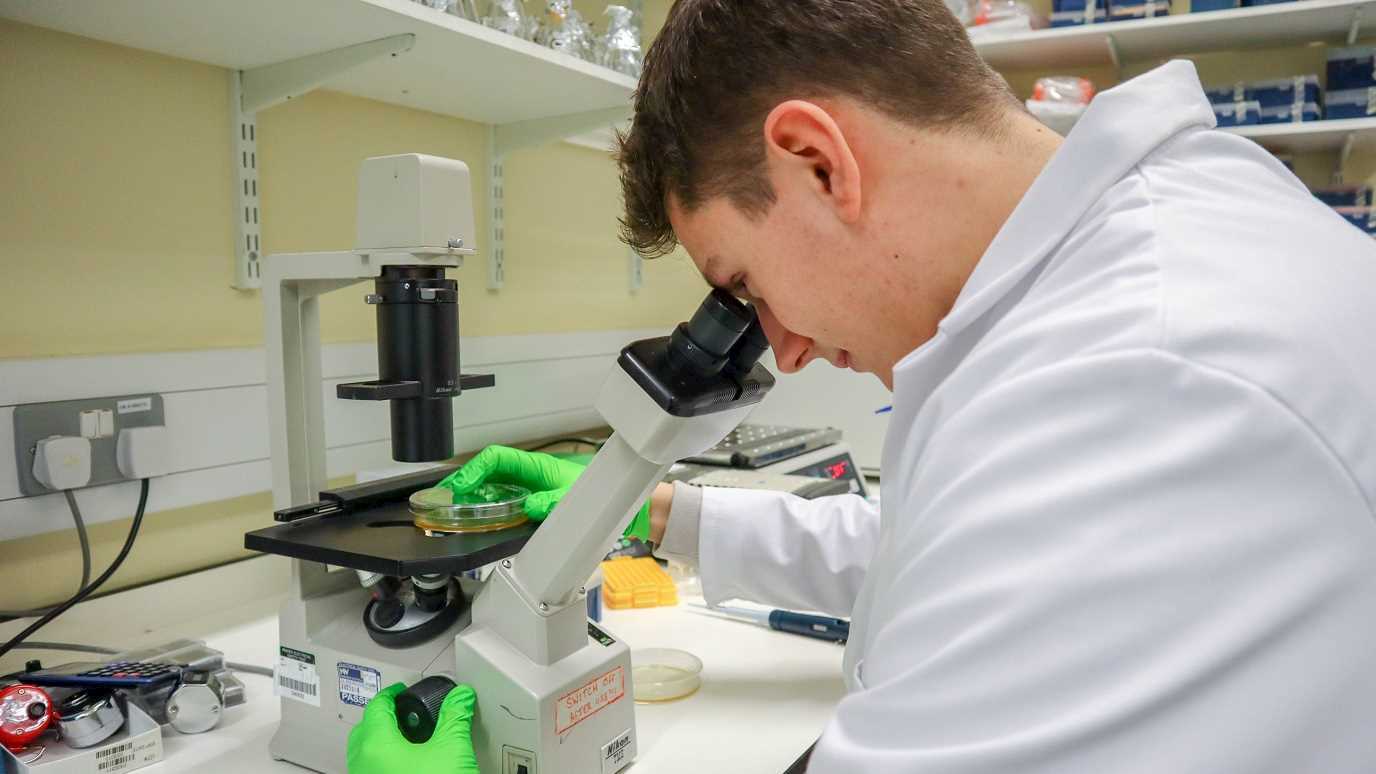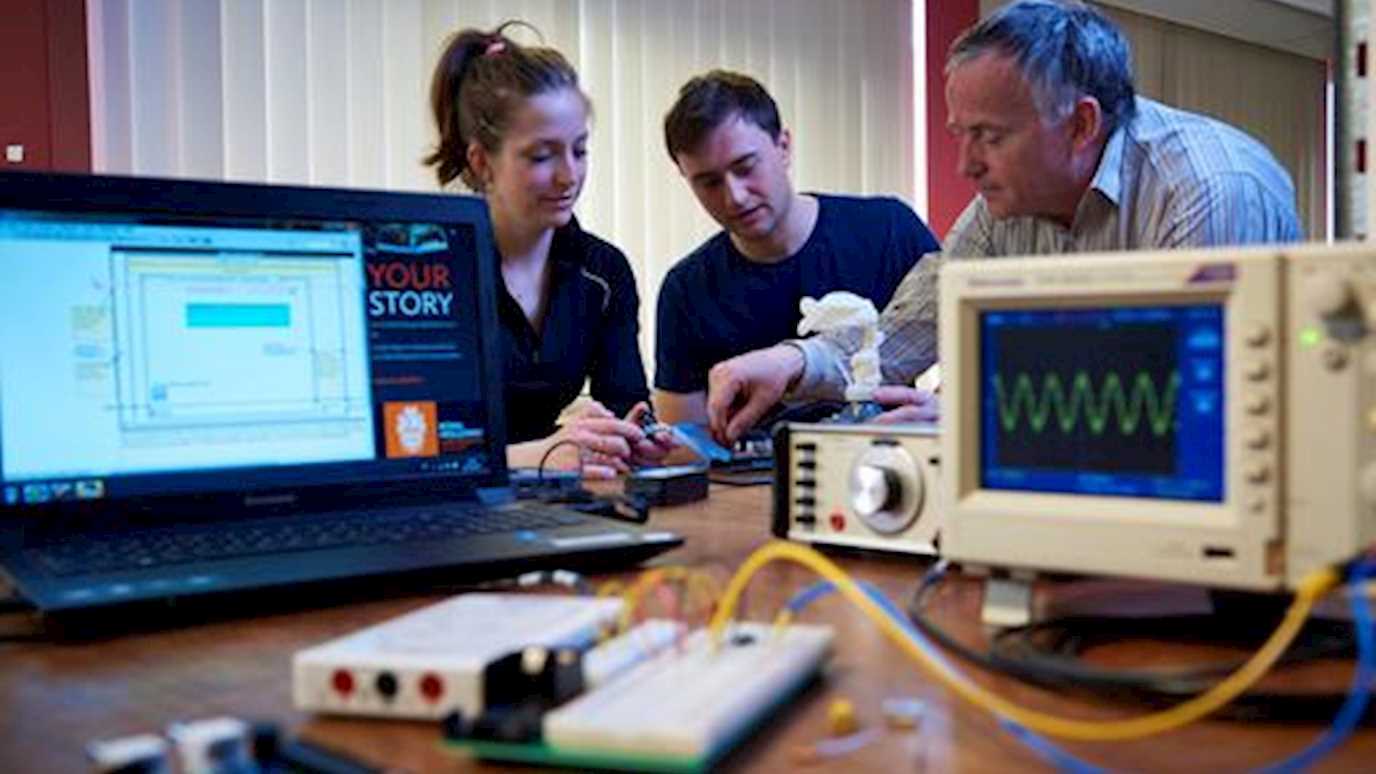Technicians are key in supporting academic colleagues and students across the University.
As a diverse group of specialists they support the practical elements of teaching and cutting edge research. Technical colleagues are relied upon to employ specialist training and knowledge to solve a variety of technical and practical problems that often require innovation, ingenuity, creativity and practical experience. They provide a pool of knowledge that can be passed on to other staff and students through instruction, training and mentoring. We have technicians across nine departments in the university, to learn more about the different specialties, select a department from the list below.
Biological Sciences
The Biological Sciences technical team work across core services, teaching and research. They are based around specialist areas such as laboratories, workshops, prep rooms, controlled environment facilities (e.g. glasshouses, BSU) and stores. All members of technical staff have responsibility for safety and compliance in their areas, training new and existing users on equipment and in facilities.
The main activities supported are teaching and research, the team also support or lead outreach activities on site with local schools, colleges, and at public engagement events.
The team has trained Health and Safety Co-ordinators (HSCs), and technicians with specific responsibilities around laser, radiation and biological safety, who provide advice and guidance on safety to staff and students across the department. Many specialist technicians hold PhDs and degrees in their subject areas, while others bring extensive industry, education and research experience.
The technical team are the go-to people for help and advice, many being fire marshals and first aiders, helping keep the departmental community safe while working in high-risk areas.
Drama and Theatre
Five technicians comprise the technical team supporting research, teaching and practice in the department of Drama, Theatre and Dance. During its relatively brief 45-year history, the department has grown into one of the country’s largest university Drama departments. Technical staff are required to have experience, qualification and knowledge in assorted stage craft which includes:- stage and production management; electrical installation, maintenance and repair; lighting design; costume and prop design and manufacture; set design and realisation; sound design and installation as well as video and effects creation.
Earth Sciences
The Department of Earth Sciences Technical team are responsible for providing technical support in laboratories, fieldwork, teaching and research activities within the Earth Sciences department. The technical team play a crucial role in assisting researchers and faculty members in conducting experiments, maintaining equipment, sample collection, sample preparation, data analysis, and ensuring laboratory health and safety protocols are followed. They are responsible for preparing samples, calibrating instruments, maintaining geological and environmental monitoring instruments, and assisting with fieldwork expeditions. Specialist equipment operation is also conducted by the technical team, including analytical instruments such as gas mass spectrometers, Electron microscope, Inductively Coupled Plasma Mass Spectrometer (ICP-MS) and Elemental Analyser. They manage a variety of specialist labs including the new school imaging suit facility, clean laboratories, geochemistry, analytical, palaeontology and fault dynamic laboratories. The team have a wide range of expertise in various techniques such as microscopy, spectroscopy, geochemical analysis, geographic information systems, photography, thin section preparation and more.
Electronic Engineering
Electronic Engineering has a small team of 4. We cover all areas of teaching and research. We have expertise in fabrication, design, electronics and computing. We support the student project work and engage heavily with the creative side of the teaching. Over the summer we run a very popular school work experience programme supported by the technicians. This has grown year on year and we are in high demand.
To learn more about the Electronic Engineering department click here
Geography
The Department of Geography’s technical team is comprised of 7 members of staff with varied specialisms and skills. The team are critical for supporting the wide-ranging research and teaching activities carried out in the department including supervising students in laboratories, producing graphics for displays and communications, demonstrating on field trips, keeping our IT facilities running and preparing samples for research analysis. To learn more about the Department of Geography and our activities, click here.
Computer Science , Information Security and Maths
We’re a team consisting of 4 members of staff dedicated to supporting the computer science, mathematics and information security departments. We offer support and advice specifically tailored to the computer science, information security and maths departments. You can learn more about our work here.
Media Arts
The Media Arts department has eight technicians supporting practice teaching across many courses and modules. The technical team are skilled in multiple digital disciplines surrounding film production such as camera technique, post-production, VFX, audio recording and clean-up as well as video game design and virtual production. There are also practical disciplines like set building, prop making and handling.
These skill sets are ever expanding and passed onto students through workshops, lessons and one-to-one tuition.
Physics
The department of Physics has eleven technical staff with a wide range of skills, including mechanical engineering, electronics, cryogenics, teaching and computing.
The technical staff support all aspects of teaching and research within the department, from undergraduate classes and projects, to high level research in particle physics, dark matter and neutrinos and condensed matter physics (including quantum computing and materials, superconductors and biodiagnostics).
Psychology
The Department of Psychology is home to a small technical team, consisting of five colleagues with varied expertise. The teams' strengths are in MRI, VR, coding, and online research programs such as Gorilla and Qualtrics. The teams' work spans all levels of academia, from supporting UG students with project work, to supporting Professors with research and teaching.
To learn more about the Department of Psychology and our activities, click here.























